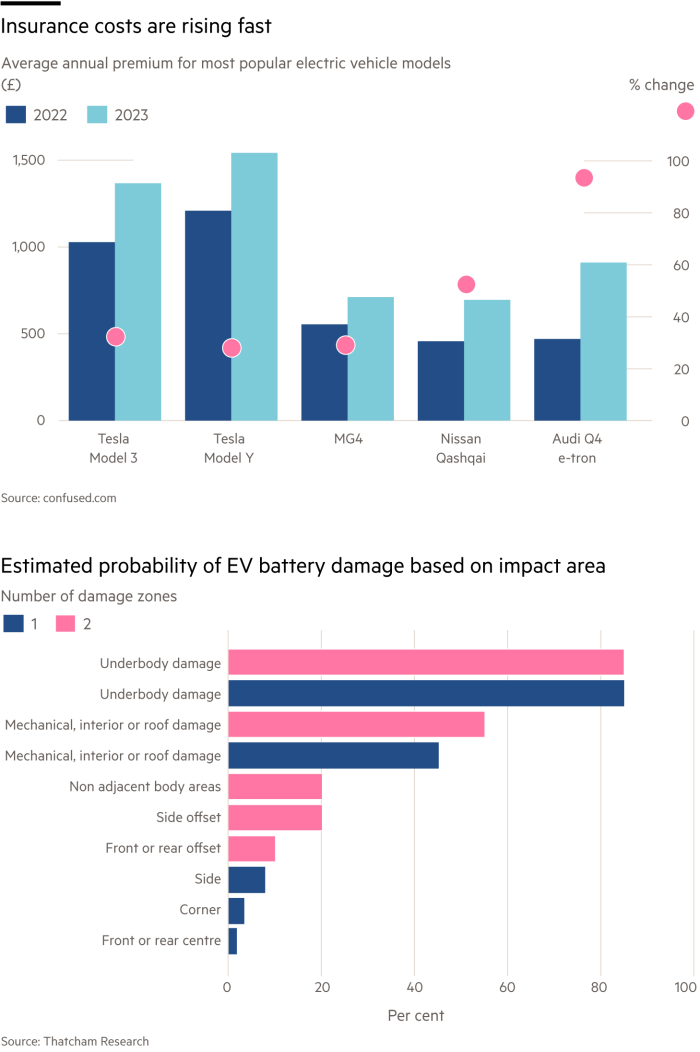Unlock the Editor’s Digest for free
Roula Khalaf, Editor of the FT, selects her favourite stories in this weekly newsletter.
Tesla owners must be choking on their kale smoothies. Auto insurers have rapidly boosted prices for electric vehicle cover in the past year, much more than for fossil fuel cars. Indeed, John Lewis has suspended sales of its EV policies by request of French underwriter Covéa as it reassesses the cost of repairs.
Average electric car insurance costs rose 72 per cent in the year to September, compared with 29 per cent for petrol and diesel models, according to Confused.com. The price comparison site notes that premiums for Tesla Model 3s, the most quoted EV on the site, rose more than two-thirds in the past two years. In fact, Aviva withdrew insurance policies for some Tesla models earlier this year before reinstating cover a few months later.
EV claims are typically 25 per cent higher than combustion equivalents and take 14 per cent longer for repairs, according to research from Thatcham.
Blame high replacement costs. Spare parts are difficult to source, as are specialised technicians. It does not help that EVs are relatively new propositions, so insurers have insufficient data history on their maintenance.

Batteries cause problems of their own. These are expensive pieces of kit, worth a significant part of the overall vehicle cost, about half. That can be more for models with longer ranges and greater power. They are also susceptible to minor damage.
That can cause safety concerns as even small dings to battery packs can destabilise cells, potentially causing fires and even explosions. A combination of high costs and volatile outcomes means many EVs are simply being written off for damage that traditional vehicles would survive.
EVs are on the cusp of breaking even with traditional internal combustion engines, as cheaper running costs offset the higher upfront cost of the vehicle. As higher insurance makes EVs less attractive, adoption rates will adjust accordingly.
Are higher insurance rates for EVs a big concern for owners, or just a passing phase? The Lex team is interested in hearing more from readers. Please tell us what you think in the comments section below.
